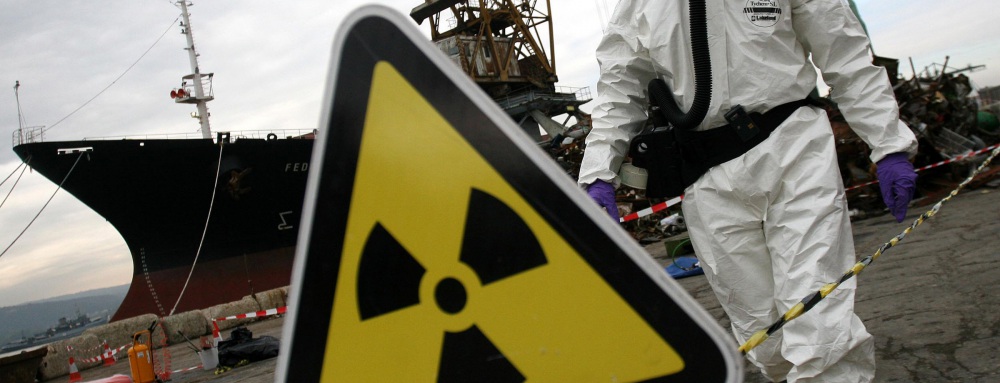
Tutorial on Nuclear and Radiological Security
Nuclear and radiological security aims to ensure nuclear and other radioactive materials are secure from unauthorized access and theft, and that nuclear facilities are secure from sabotage.
The Nuclear Threat Initiative (NTI) and the James Martin Center for Nonproliferation Studies (CNS) released a new report, Replacing Highly Enriched Uranium in Naval Reactors. The report has been made available in advance of the fourth and final Nuclear Security Summit in Washington and explores the prospects for minimizing highly enriched uranium (HEU) in the naval sector worldwide, with a special focus on the United States Navy.
HEU is the simplest nuclear material to use for an improvised nuclear device, making it a target of terrorist groups seeking to inflict mass destruction. Significant progress has been made in reducing the use of HEU in civilian sector, including in research reactors and in medical isotope production. Programs like the U.S. Global Threat Reduction Initiative are responsible for eliminating HEU from 18 countries plus Taiwan and converting more than 92 research reactors and medical isotope production facilities from the use of HEU since 2004.
Today, the largest remaining non-weapons use of HEU is as fuel for naval propulsion reactors, with approximately 290 metric tons of HEU in global naval inventories—enough material for more than 11,000 nuclear weapons. Most countries with naval programs have been reluctant to convert from HEU to low-enriched uranium (LEU), a less risky alternative, even though LEU-fueled reactor cores have been shown to deliver the same or greater power levels.
The report, authored by CNS' George M. Moore, Cervando A. Banuelos, and Thomas T. Gray, surveys the status of HEU minimization in civilian and non-weapons military applications. It explores the history of HEU use and current status in 16 countries, including the United States, Russia, United Kingdom, France, China and India. The authors provide a technical assessment of LEU alternatives—already employed by China and France—and offer recommendations to enable conversion to such alternate technologies.
Sign up for our newsletter to get the latest on nuclear and biological threats.
Nuclear and radiological security aims to ensure nuclear and other radioactive materials are secure from unauthorized access and theft, and that nuclear facilities are secure from sabotage.
The NTI Index is recognized as the premier resource and tool for evaluating global nuclear and radiological security.
“The bottom line is that the countries and areas with the greatest responsibility for protecting the world from a catastrophic act of nuclear terrorism are derelict in their duty,” the 2023 NTI Index reports.
